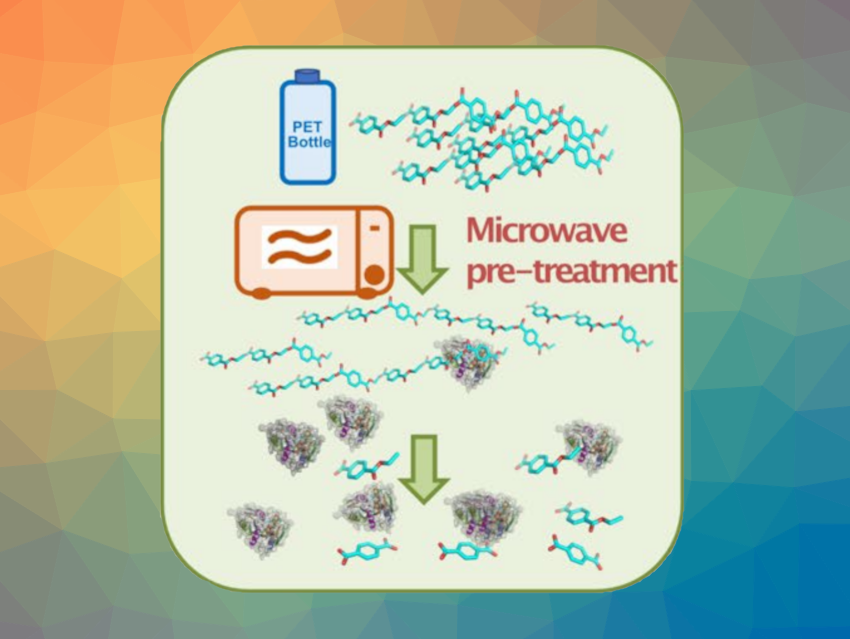Today’s materials economy often relies on fossil resources and results in the accumulation of enormous amounts of plastic waste. Biocatalytic plastic recycling is one approach to solving this issue, but it can be hampered by insoluble plastics with compact secondary structures that provide low accessibility for enzymes that can initiate a depolymerization reaction.
Minna Hakkarainen, Per-Olof Syréna, KTH Royal Institute of Technology, Solna, Sweden, and colleagues have used microwave irradiation as a pre-treatment process for the enzyme-mediated depolymerization of post-consumer polyethylene terephthalate (PET) bottles. A microwave step followed by administering an engineered polyesterase (IsPETase S238A) resulted in a 1400-fold higher release of terephthalic acid (TPA) compared with untreated PET bottles. The process (pictured below) provided 78 % yield conversion after a 2 h microwave pre-treatment and 1 h of the enzymatic reaction at 30 °C.

The team proposes that the microwave irradiation works by efficiently shortening the polymer chains of PET and making them adopt favorable conformations that are more accessible to the enzymatic hydrolysis reaction. The results highlight how microwave pre-treatment can enable efficient biocatalytic plastic recycling under mild conditions.
- Fast Depolymerization of PET Bottle Mediated by Microwave Pre‐Treatment and an Engineered PETase,
Boyang Guo, Ximena Lopez-Lorenzo, Yuan Fang, Eva Bäckström, Antonio Jose Capezza, Sudarsan Reddy Vanga, István Furó, Minna Hakkarainen, Per-Olof Syrén,
ChemSusChem 2023.
https://doi.org/10.1002/cssc.202300742




